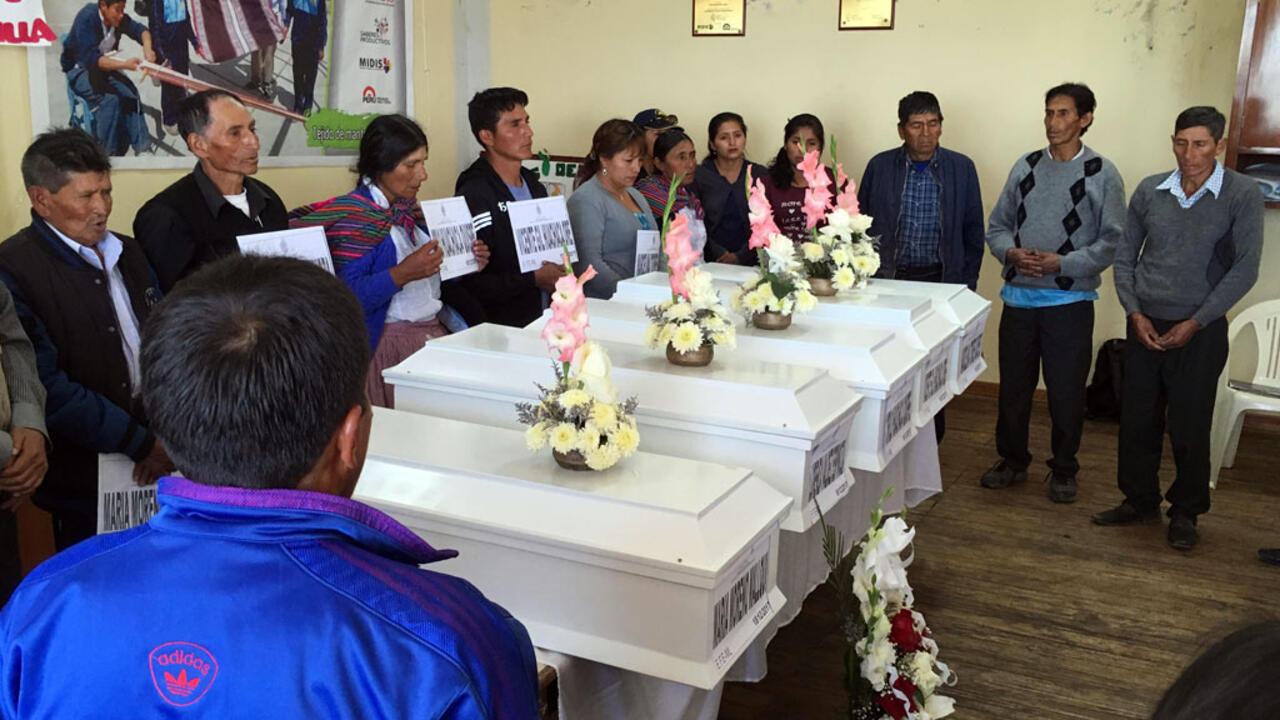Peruvian President Dina Boluarte on Wednesday signed into law a controversial bill granting amnesty to military personnel, police and members of civilian self-defense units over a bloody 1980-2000 campaign against Maoist Shining Path guerrillas.
"Today, with the enactment of this amnesty law, the government is paying tribute to the military and self-defense groups that participated in the fight against terrorism," Boluarte said during a ceremony at the presidential palace.
The law benefits uniformed personnel on trial but not yet convicted of crimes committed during fighting between state forces and the insurgent Shining Path and Tupac Amaru rebel groups, in which 70,000 people were killed, according to official data.
About 20,000 people remain listed as "disappeared".
It also provides for the release of anyone convicted who is now over the age of 70.
"This law is quite simply a betrayal of Peruvian victims," said Juanita Goebertus, Americas director at Human Rights Watch.
"It undermines decades of efforts to ensure accountability for atrocities and weakens the country's rule of law even further."
To display this content from YouTube, you must enable advertisement tracking and audience measurement.
One of your browser extensions seems to be blocking the video player from loading. To watch this content, you may need to disable it on this site.

The Inter-American Court of Human Rights (IACHR) had said Peru must "immediately suspend" approval of the law or – if it was enacted – refrain from applying it while the court looks into how the amnesty would affect victims' rights.
Supporters of the law come from right-wing political parties that have historically defended the military, including the Popular Force party led by Keiko Fujimori, daughter of former President Alberto Fujimori, who died in September.
The ex-president, who led Peru from 1990 to 2000 and ordered the military to shut down Peru’s congress and its supreme court two years into his first mandate, was in prison for most of the last 15 years of his life in prison after being convicted of crimes against humanity.
Other amnesty laws passed in 1995 in Peru shielded military and police personnel from prosecution for alleged human rights abuses during the country’s internal conflict, including massacres, torture and forced disappearances.
A report by UN experts last month urged Boluarte's government to veto the law, arguing Peru "has a duty to investigate, prosecute and punish gross human rights violations and crimes under international law committed during the conflict".
The new law could affect 156 cases that have been decided and more than 600 others still underway over crimes committed during that 20-year span, those experts said.
Boluarte – whose approval rating is at an all-time low and whose term ends in July 2026 – has rejected all criticism of the amnesty.
To display this content from YouTube, you must enable advertisement tracking and audience measurement.
One of your browser extensions seems to be blocking the video player from loading. To watch this content, you may need to disable it on this site.

01:48
In August 2024, Peru adopted a statute of limitations for crimes against humanity committed before 2002, effectively shutting down hundreds of investigations into alleged crimes committed during the fighting.
It also helped 600 prosecuted military personnel.
According to Peru's Truth and Reconciliation Commission, there are more than 4,000 clandestine graves in the country as a result of two decades of political violence.
The commission has determined that the majority of the conflict’s victims were Indigenous Peruvians caught up in clashes between security forces and Shining Path.
(FRANCE 24 with AFP and AP)











 English (US) ·
English (US) ·